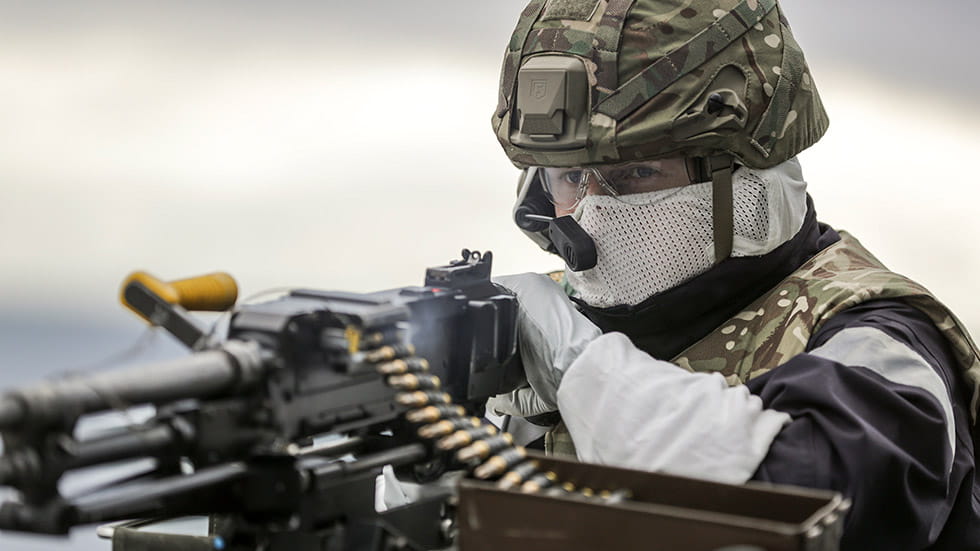Warfare Specialist
You’ll detect threats to your ship, identify targets and make crucial tactical decisions.
- £18,500 - £56,000
- No qualifications
- Surface Fleet
- Warfare
- Rating level
£25,200
Zero
£56,383
Free
6 weeks
Travel

As a Warfare Specialist I get to operate state of the art equipment, weapons and I also get to travel the world with people I am proud to call my friends.
Role details
What you’ll do
Being a Warfare Specialist in the Royal Navy means you’re the person who identifies our targets, and our threats. Whether working in the Operations Room or on the ship's Weapon Systems you will be the heartbeat of the war-fighting effort. This job comes with serious responsibility, get it wrong and the ship could sustain damage, get it right and the enemy is defeated.
Your role
There are four sub-specialisations for Warfare Specialist:
- Abovewater Warfare Tactical: You will work with some of the most advanced and sophisticated RADAR and Computer Systems on the planet.
- Abovewater Warfare Weapons: You will be trained to operate state-of-the-art weapon and missile systems.
- Electronic Warfare: You will operate specialist equipment to assist to intercept and analyse electromagnetic (RADAR) emissions to determine their identity.
- Underwater Warfare: You will become the Royal Navy's 'Submarine Hunters', trained in how to operate the most advanced SONAR systems.
Pay & benefits
- A salary that rises to £25,200 after initial training
- Earn in excess of £56,383 as your career progresses
- An excellent pension scheme
- Six weeks of paid holiday every year
- Free medical and dental care
Skills for life
Qualifications you'll gain
- Attain a Level 3 Data Technician Apprenticeship
- Study for GCSEs, A-Levels, NVQs or a degree
- Gain specialist vocational qualifications as your career progresses
Skills you'll develop
- The ability to work accurately and calmly under extreme pressure
- Become a master at analysing complex information, using your tactical knowledge to produce concise and insightful reports
Eligibility
- You must be aged 16 to 39
- No qualifications are required for this role
- You must be a United Kingdom citizen or British Dual National. Dual Nationality restrictions do apply
- You must have lived in the UK for 5 years continuously prior to application
- A Body Mass Index (BMI) between 18 and 28 (between 17 and 27 if under 18)
Skills & Interests
- An ability to thrive in high-pressure situations; we will teach you to thrive in a high-pressure situation
- Teamwork
- A passion for life at sea
- A real sense of adventure, with a high level of physical and mental fitness
Joining Process
From picking your role to starting on your first day, these are the steps you'll take to join as a rating.
Submit an application
Defence Aptitude Assessment (DAA)
You’ll be tested on: Verbal Reasoning, Numerical Reasoning, Work Rate, Spatial Reasoning, Electrical Comprehension and Mechanical Comprehension.
To prepare, you can practise the DAA
Interview
A formal interview to talk through your suitability for the role. This is normally conducted using your own device over the Shine video platform
Candidate Preparation Course (CPC)
This four-day induction to life in the Royal Navy, including a Swimming Test and a fitness assessment, is a pass or fail course
Start training
Once you’ve passed a Security Check, you’ll be offered a place at HMS Raleigh
Career Progression
Got a question?
Our virtual recruiter is available to answer your questions 24 hours a day
